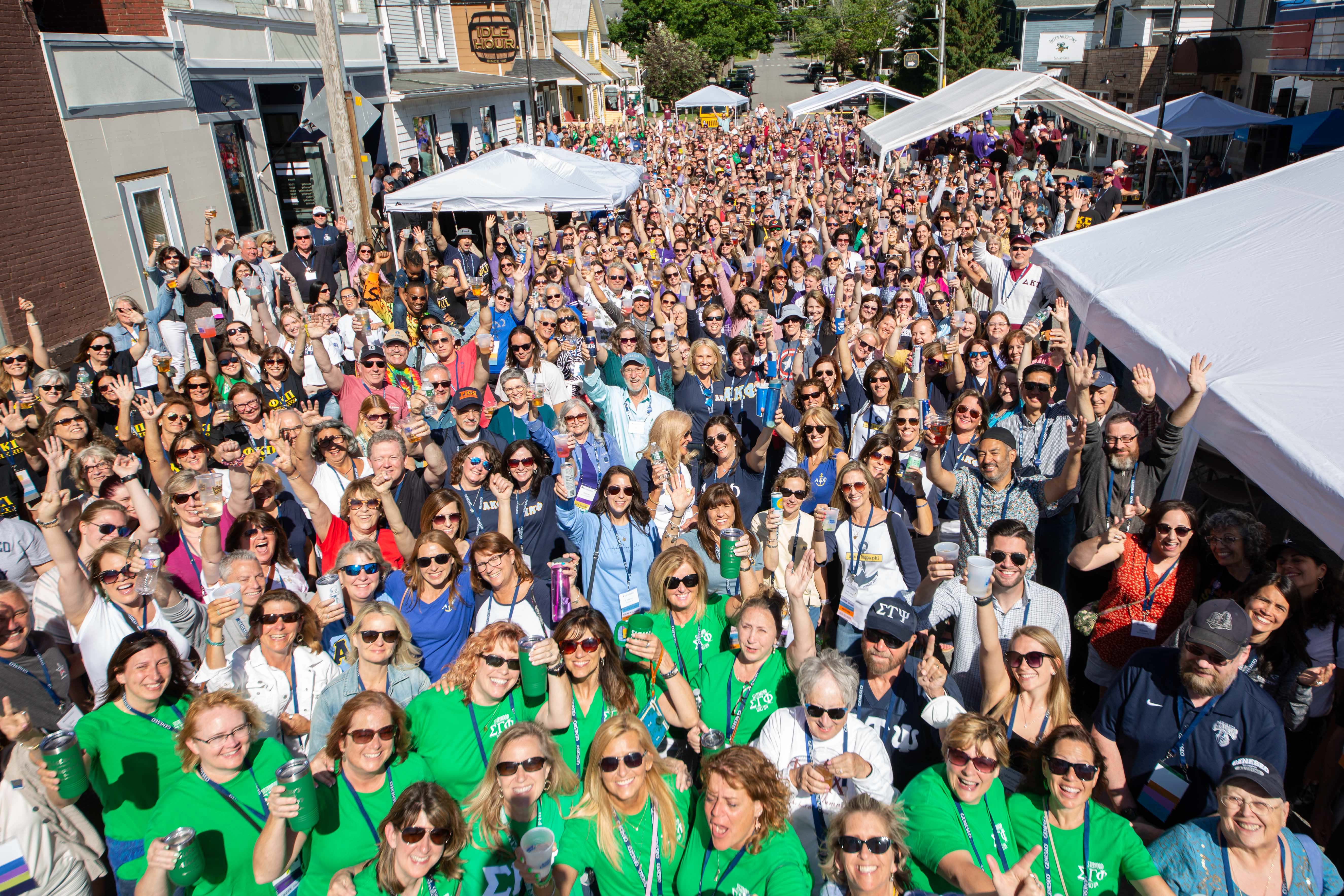Bruce Himelstein ’76 started hotel work as a bellhop. He became a sales and marketing expert known for innovation and customer service.
By Sherrie Negrea
Six months after graduating as a communication major from Geneseo, Bruce Himelstein ’76, in desperation, took a job as a housekeeper at the Americana Inn in Albany, N.Y. He struggled to clean hotel rooms and was fired after a week.
The hotel’s general manager, however, liked him and rehired him to bellhop. So Himelstein, dressed in early American attire of knickers, stockings and buckled shoes, began carrying guests’ bags to their rooms. “Before I knew it,” he says, “I started falling in love with the hotel business; it caught me by surprise.”
Fast-forward 20 years and Himelstein had become the vice president for sales at Marriott International, the world’s largest hotel chain. And six years later, he was named chief sales and marketing officer for The Ritz-Carlton Hotel Company, where he transformed the chain from a stodgy brand to a leader of luxury hospitality.
As he rose to the top levels of the hotel industry, Himelstein didn’t stray far from his major at Geneseo and from his belief that anything is possible. Himelstein demonstrated that just after transferring to Geneseo his junior year, when he launched a television program called “RAPPORT” on WGSU-TV, conducting interviews with people of interest to the College.
When Geneseo’s then-president, Robert MacVittie, appeared on the show, Himelstein jokingly asked who his boss was, and MacVittie replied, “the chancellor.” Himelstein then invited Chancellor Ernest Boyer on the show, who readily accepted.
“I found out, ‘Don’t be afraid to think big,’” he says. “The worst that can happen is they’ll say no.”
In 2002, when Himelstein became the chief sales and marketing officer at Ritz-Carlton, the company was struggling to grow in market share. The average customer was a 68-year-old white male, and the Ritz-Carlton was known as “the place that your aunt took you to tea for your birthday,” he says.
To appeal to a younger clientele, Himelstein pledged to “blow the dust off the lion and the crown” — which is the hotel’s logo — and launched a marketing campaign that emphasized the guest experience and a more contemporary hotel design.
“We were less about what the ballroom and lobby looked like and more about the experiences you could have,” he says. “We started shifting the perception of the brand, and we started to see the customer demographic change.”
The campaign, and Himelstein’s role in it, were featured in the 2008 New York Times bestseller “The New Gold Standard,” by Joseph Michelli.
Named one of the “Top 25 Minds in Sales and Marketing” by the Hospitality Sales and Marketing Association International in 2005, Himelstein then moved to Loews Hotels & Resorts, where as chief marketing officer, he developed several innovative campaigns. Under his leadership, Loews, which owns and operates 24 hotels, became the first chain to leverage its guests’ Instagram photos in its marketing.
“Instead of stock shots or photo shoots with professional models, we came up with the idea of using our own guests’ experiences in our campaigns,” says Himelstein, who was inducted into the American Marketing Association Hall of Fame in 2007. The campaign fed into the company’s new marketing slogan, “Loews enables you to be yourself when you travel.”
After three years of commuting to Loews’ headquarters in New York from his home in Boca Raton, Fla., Himelstein created a company, the BJH Group, in 2015, focusing on his current work as a consultant and speaker for businesses, hospitals, universities and health care organizations. Like hotels, they all depend on customer service for their success.
What energizes him now is working on new challenges for Fortune 500 companies. “It still blows my mind all these years later that I’m being invited to a CEO-level table, and I was the guy carrying bags for tips,” he says. “And now they want my opinion on what they’re doing.”
One key message he offers to all his clients: Prepare for disruption. Just as taxi cabs didn’t foresee Uber and hotels didn’t predict Airbnb, Himelstein says all businesses will be disrupted, and they need to reach out to people who have the vision to lead them through change before it happens.
“If you’re running a business, one of the things you can’t be doing is hiring people and surrounding yourself with people who are only in that business,” he says. “You’ve got to think through that white piece of paper and surround yourself with people who can bring you different views on strategy, so you don’t have tunnel vision running your business.”










